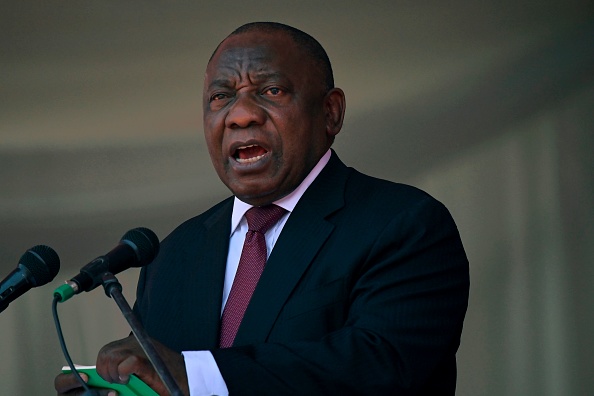
South African president voices concern over impact of COVID-19 on media sector

President Cyril Ramaphosa on Monday voiced concern over the heavy losses inflicted on South Africa’s media by the COVID-19 pandemic.
It is a great concern that like all other sectors of the economy, South Africa’s media houses had been dealt with a serious blow by the coronavirus pandemic, Ramaphosa said in his weekly presidential address.
Financial difficulties are being faced across the board, from online titles and traditional broadsheets to the public broadcaster – the South African Broadcasting Corporation (SABC), the president said.
He said this was just one of the issues raised during his engagement with the South African National Editors’ Forum last week.
A number of publications lost up to 60 percent of their income in the early days of the lockdown, forcing companies to implement salary cuts and reduce staff numbers or working hours, said Ramaphosa.
Other publications have even been forced to close, including some of South Africa’s most established and well-known magazine titles, he said.
The president acknowledged that job losses that have resulted from the lockdown have exacerbated a crisis for media companies already facing challenges like loss of advertising revenues, falling circulation and market share being taken by mobile-first news and other technologies.
However, instead of lamenting their fate, the media industry continued to strive to refine business models, drive innovations and retain staff as much as possible, Ramaphosa said.
With respect to the role of media in society, Ramaphosa called the media “a unique entity in any society because its practitioners fulfill a role that is so essential to our democratic order.”
“They work to keep the public informed and to keep power in check. We need more journalists, not less. That is why the loss of even a single journalist is not just a loss to the industry but to the country,” said Ramaphosa.
Calling on South Africans to fully support the media, he promised that the government will continue to extend advertising to publications and broadcasters, especially community media.
As the great task of rebuilding the economy in the aftermath of the pandemic began, South Africans need their media veterans, with their vast experience and institutional memory, and ability to offer critical reportage and informed analysis, Ramaphosa said.
At the same time more young journalists who are tech-savvy, abreast with new trends in storytelling and in touch with the concerns of a youthful population would also be needed, he noted.
“As we salute their role in this pandemic, let us do what we can to ensure that the free and diverse media in our country is able to survive and thrive,” he said.






